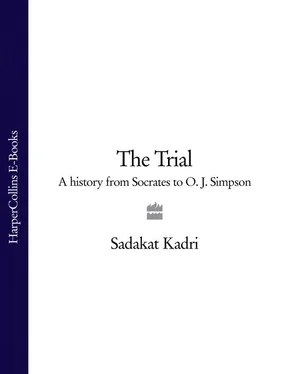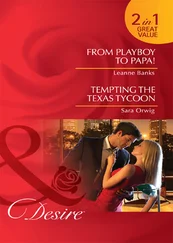The law has become so closely associated with reasoned deliberation that it is sometimes hard to think of criminal trials as anything other than inquiries – but they have always performed a function that goes far beyond that of establishing who did what to whom. The first judges were priests, whose punishments were as sacrificial as they were penal, and the law has ever since asserted the power most proper to gods: the ability to rebalance a cosmos knocked out of kilter. Since the days of ancient Athens, there is no wrong that it has not somewhere claimed to right – even when no human defendant has been available to carry blame. In the courts of early modern Europe, creatures from beetles to bulls were regularly prosecuted, defended, and condemned at public expense. English juries for several centuries returned homicide verdicts against mischievous objects from haystacks to locomotives. Lawyers discovered new categories of criminal, from traitors to werewolves, whenever popular passion or private fear required. The long arm of the legal process even reached into the grave: for well over half a millennium, the bodies of dead criminals were brought into court to be accused by witnesses, defended by advocates and, if convicted, punished by the public executioner.
The cowls have metamorphosed into gowns and the incantations have turned to jargon, but ancient impulses still quiver around every courtroom. Rational concerns and logical argument typify any given case, but the terror of infanticide and Devil worship that once sent witches to their deaths was resurrected, in the form of satanic sexual abuse allegations, during the 1980s. Animals and corpses are no longer put on trial, but the urge to punish defendants regardless of their mental state lives on in prosecutions of children and the mentally ill. Perhaps the best example of the continuing faith in legal omnipotence comes from a case that never quite happened. In the spring of 1949, the first president of the Israeli Supreme Court, Moshe Smoira, received dozens of petitions from Christian clerics around the world. His country was less than a year old and had just fought off five Arab armies committed to its destruction, but the writers had few doubts about the urgency of their appeal – and none at all concerning the legitimacy of the Jewish state. Would he please, they asked, reopen the proceedings of the Sanhedrin and overturn the conviction of Jesus Christ?
This book quickened in 2000 in London, where I had been working for seven years as a criminal barrister. Almost a decade before, I had lived in post-revolutionary Prague and had then been struck by the extent to which many Czechoslovakians seemed to be blaming others to avoid tough questions about their own contributions to the communist era. I had vaguely wondered then if such thoughts might stretch into a book on scapegoats and soon decided that they would not. The weird dynamic of naming and shaming continued to interest me, however, as I represented villains both innocent and guilty, and by 2000 I was ready to try again. This time, I had a far clearer structure in mind. By writing a history of the criminal trial, stories rather than theories would drive the book forward.
Events elsewhere would further delineate its structure. Before Prague I had studied at Harvard and qualified for the New York Bar, and it seemed a sensible idea – or at least a pleasant one – to relocate to the United States. I reached New York in the summer of 2001. By mid August I was ensconced in a small studio with a splendid view over Manhattan’s financial district. Thus it was that on 11 September I watched from my windows as the towers of the World Trade Center burned and collapsed. Over subsequent weeks I wandered a city in mourning, personally unable to write and convinced that little was now of less significance to anything than an analysis of the criminal trial. I would spend another two and a half years in the United States and my mood would pass. But others, many of them in high places, were expressing similarly gloomy conclusions about the redundancy of the criminal process – and in their case, the trauma would have lasting effects. Over the next few months, a landscape familiar to me since law school seemed sometimes to be melting away. Several legal commentators were suggesting that the constitutional right to silence should be abolished. A Harvard law professor whom I had once respected proposed that it might be time to introduce a right to torture in its place. The administration of President George W. Bush, meanwhile, embarked on a policy of deeming entire categories of people, American and foreign, to be subject to indefinite detention without a right of access to courts, let alone a right to public trial.
Emergency powers have been invoked to combat terrible crimes since the days of heresy and witchcraft, and the fact that twenty-first-century commentators were readopting stances that inquisitors had abandoned in the eighteenth soon reassured me that a little historical perspective would not go amiss. But the aftermath of September 11 also sharpened the focus of my book. I had always anticipated that a central theme would be the conflict between reason and emotion – a tension that galvanizes any courtroom – but in the new climate a more fundamental aspect of that link came to the fore: why trials take place at all. For at the same time that hundreds of people were being accused without prosecution, official talk of justice – and even Infinite Justice – was reaching a crescendo. Governments are not the only component of a criminal justice system, but the reasons that they avoid courts increasingly came to seem at least as significant as the reasons that they resort to them. The relationship between secrecy, publicity, and transparency consequently became central to my book.
From the very outset, I chose not to conduct interviews. Contemporary topics such as capital punishment and the war on terror would have called for a range of views from participants ranging from defendants to judges. Anthropologists, sociologists and political scientists, not to mention historians and lawyers, might all have had other worthwhile things to say. Finding experts to cover every subject evenly would have been beyond my time and inclination. The book quotes from countless chronicles, pamphlets, transcripts and newspaper reports but mine is the only voice to keep the babble in line.
The task that lay ahead when I began was a daunting one. The tale I intended to trace began more or less at the dawn of time, hopped back and forth between centuries, and demanded that I address subjects as dark as child abuse and terrorism with as light a touch as possible. It was a tall order, and attempting to fulfil it gave the book a very particular structure. Rather than use a straightforwardly chronological approach, which lacked flexibility, or compile a compendium, which would have bored me let alone anyone else, I divided the work into eight thematic chapters that proceed in roughly historical order. They begin with the religious rituals of the classical and barbarian worlds and end in the trial circuses of today, and several address specific aspects of twenty-first-century justice. Each dovetails into the next and with luck, they combine to form more than the sum of their parts.
Several ideas run through the chapters, but one simple theme could be said to link them all: the tension inherent in the criminal process between the desire to punish and the fear of making a mistake. Courts have collectively spilled at least as much blood as the people they condemned, but they have always aspired to more than violence. The oldest laws yet to be discovered, enacted by Babylon’s King Hammurabi in the eighteenth century BC, worried about injustice to the extent that false witnesses were to be punished as harshly as those who were properly convicted. And although the sword of righteousness has been in play since King Solomon, confronted with two women claiming the same child, threatened to slice it in two and wisely surmised that the impostor was the one who agreed. Justice has wielded another tool for even longer. Four and a half thousand years ago, when Hammurabi’s dynasty was unknown and Athens’ Golden Age shimmered as far in the future as it now lies buried in the past, the priests of Egypt were already venerating the goddess Ma’at, whose scales measured out justice for the dead. In the Hall of Two Truths, watched by a horrid hybrid of cat, crocodile and hippopotamus called Am-Mit, she would place the hearts of those who had just died on one pan, and drop the feather of truth onto the other. If the feather sank, the departed soul would gain entrance to the Kingdom of the Dead. But if it rose, outweighed by the heart’s burden of deceit, Am-Mit would be fed – and its owner would be abandoned to oblivion.
Читать дальше




![Theresa Cheung - The Dream Dictionary from A to Z [Revised edition] - The Ultimate A–Z to Interpret the Secrets of Your Dreams](/books/692092/theresa-cheung-the-dream-dictionary-from-a-to-z-r-thumb.webp)







